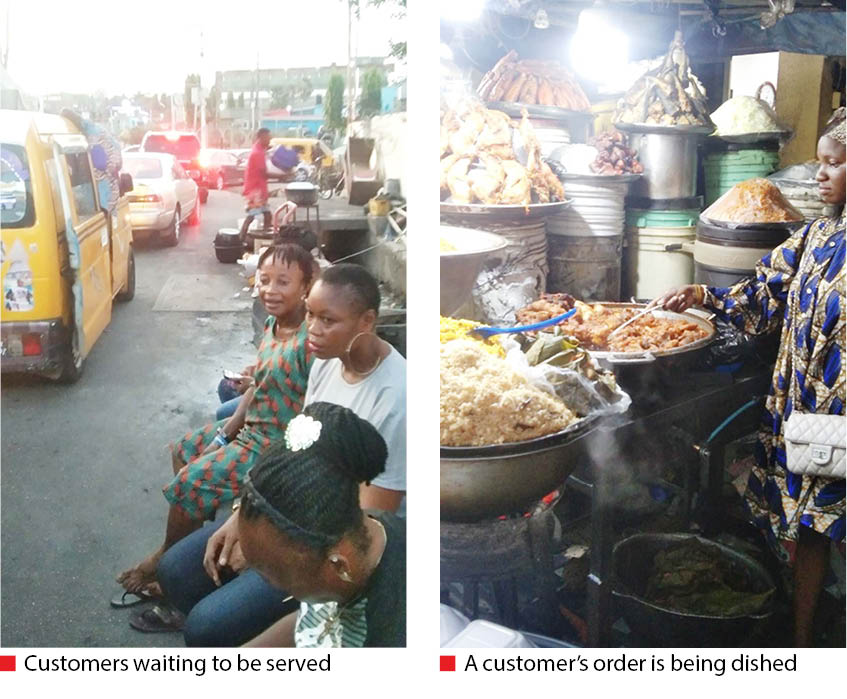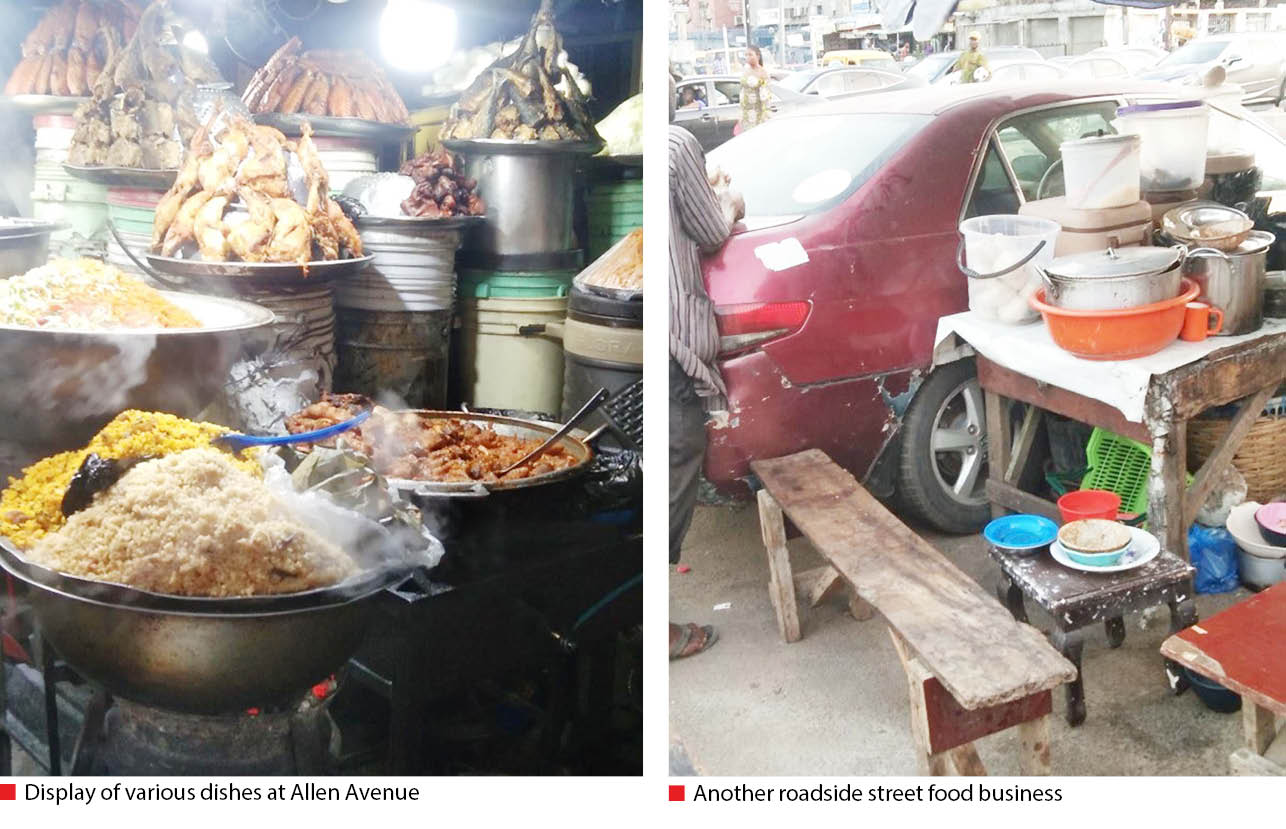Street vendors, including those who trade in food, abound in Lagos, the commercial nerve of the country. On a daily basis, a typical Lagosian hopes to patronise street foods because of the busy nature of the city; hence there are vendors for breakfast, lunch and dinner at many locations, both day and night. Daily Trust Saturday takes a look at the booming street food business in the state.
Despite the ongoing scarcity of naira notes and insufficient fuel at petrol stations, factors that have reduced both human and vehicular movements across the country, roadside food business has continued to stay afloat in Lagos.
In Lagos, street foods are seen as a lifesaver of sorts as residents also endure long hours in traffic. Daily Trust Saturday reports that street foods are common everywhere but Lagos is unique because people from all strata of the society don’t mind eating by the roadside, especially at night
Roadside food business in Lagos is everywhere and providing livelihood to thousands of people from every part of the country, including those who come outside Nigeria.
Outspan renews MoU with Kano dairy farmers
Merchants of Fake News Have Failed – Buni
Some of the delicacies, such as beans cake (akara), are appreciated because they are usually served hot, while others like bambara cake (okpa), Africa sallad abacha, ewa agonyi (local beans with extra fried stew), are cherished for their traditional tastes and flavours, taking consumers to their roots.
Recently, most people, especially unemployed graduates, started venturing into street food business, having realised how much people need food to survive and the profits therein.
When Daily Trust Saturday visited Allen Avenue and the airport area in Ikeja at night, food vendors were seen making brisk business.

Vendors displayed varieties of food that were seen as budget-friendly, such that one could eat to one’s satisfaction.
There were also varieties of snack at an average cost of N400. A lot of people also see this as being affordable.
Mrs Yetunde Olumuji, the founder of the T & K Foods, located opposite Airport Hotel, said she had been in the street business for 27 years. Sharing her story, she told our correspondent that she would not leave food vending for any other business or job.
She said the best way to make good money was to discover how to run a business linked to essential services. “Street food vending is one of the businesses that attract quick patronage because it is about essential services,” she said.
She also narrated some ugly experiences she encountered on the business, especially at night, including fraudulent bank transfers.
She further said the new cashless policy of the federal government did not affect the business because people must devise a means to eat.
“Apart from the challenges identified earlier, street food business does not experience low patronage like other businesses because people need food to remain healthy and stay alive.
“Our business didn’t go down at all as a result of this cash crunch. We are actively operating, day and night. However, at the close of business, we usually realise that most transactions were fraudulently carried out.
“We need cash to work with but people do not have it. This is affecting our business so far, but we are still very active,” she added.
Corroborating her claim, Mrs Oluwabunmi Adeluyi, who owns a joint adjacent T & K on Allen Avenue, said she had spent 30 years on roadside food business.
Mrs Adeluyi commended the cashless policy, especially as it restricts people from going about with excess cash. She said, “The policy is commendable because it will reduce attacks. We transact business through the Point of Sale (PoS) because we cannot quit this business.
“However, one of the challenges is fraudulent mobile transactions. For instance, if 20 customers ate and did transfer through the PoS, USSD code or mobile bank app, at the end of the day you would realise that only 10 or 15 of those transactions were validly carried out.
“To remain in the business we always need cash to get some important items in the market the next day. Unfortunately, such fraudulent transactions on a daily basis can keep us out of operation. That is the danger the current situation is putting us in the country.”
A roasted meat (suya) seller around the airport, simply identified as Musa Mai Suya, said his business had not folded because his customers already knew that he would not take bank transfer, so they would come with cash.
“I expect the federal government to allow people to have access to their money. But I don’t have a problem with the policy because only customers with cash come to buy suya from my stand,” Mai Suya said.
Kabiru Inaolaji, who has always patronised roadside food vendors, said people patronised them not because they can’t afford fast food restaurants but they loved the taste of street foods.
“The cost of roadside food is on the low side and suits the pocket of an average Lagosian, unlike established restaurants. With just N500, one could buy a plate of food,” he added.
Another customer, Christopher Nwokolo, attributed the huge patronage of roadside food outlets to distance. He said, “In the situation where one is hungry and his place of work is far from the nearest eatery, he needs not to stress himself going that far when he can satisfy his hunger with a plate of sumptuous meal from a nearby food joint.
“And some foods the roadside vendors sell are usually not sold in some of the fast food outlets. As a result of this, people naturally gravitate towards patronising street food vendors.”
Another characteristic of roadside food vendors is that they hardly sell leftovers; and their foods are served fresh, unlike some restaurants that microwave leftovers and sell to customers.




